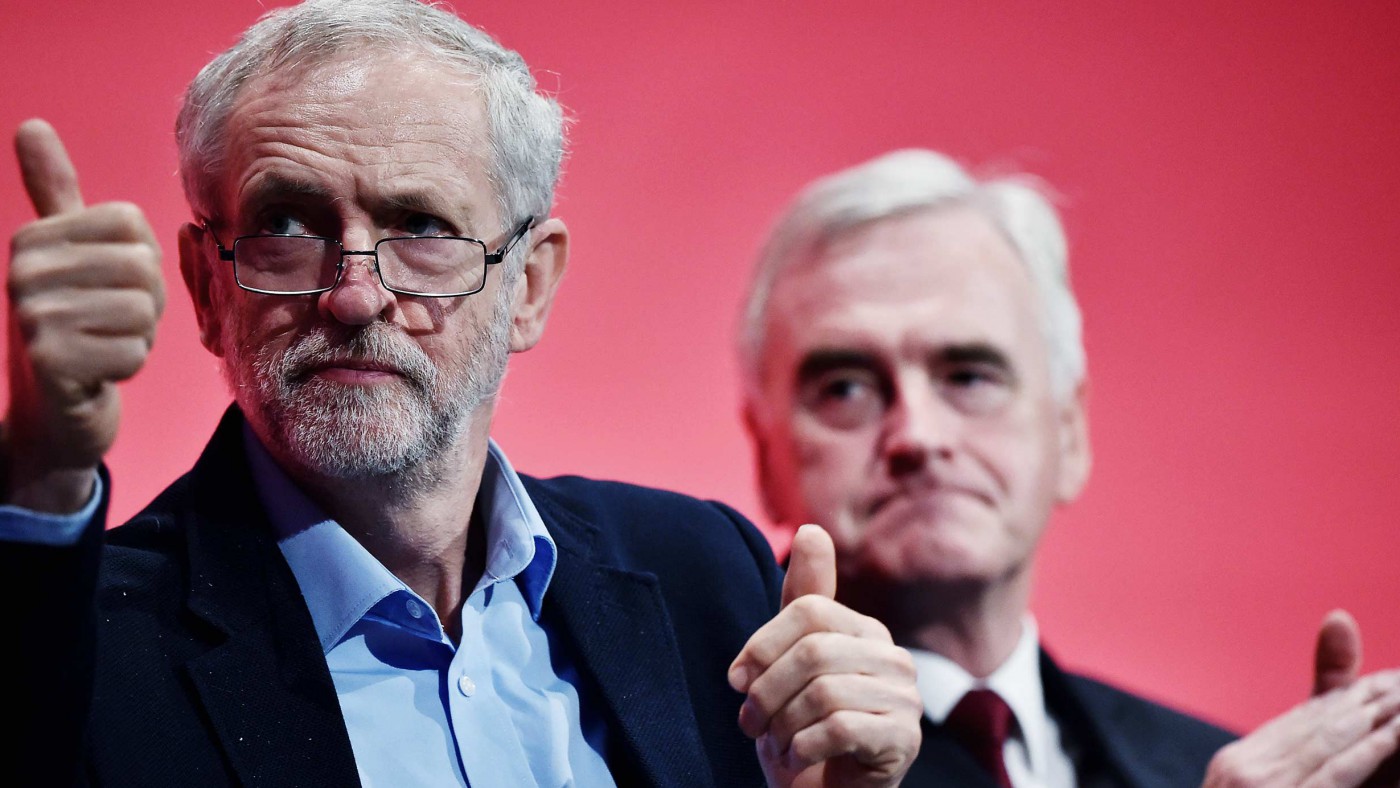Tony Blair had “Tough on crime, tough on the causes of crime” and “Education, education, education”. The Corbyn/McDonnell Labour Party has “Tough on wealth, tough on the causes of wealth” and “Embarrassing, embarrassing, embarrassing” – which have the advantage over Blair’s slogans of being accurate, at least.
The Labour Party’s shenanigans over Osborne’s “Fiscal Charter” are a wonder to behold. Two weeks ago the Labour Chancellor announced that they were going to support it. Some left-wing economists and journalists went off dutifully and wrote pieces explaining that proper Marxists like Corbyn and McDonnell didn’t have the commitment of the soft left Social Democrats to deficits and that true social radicalism would be easier if the deficit fell. Then a fortnight passed in which it appears (and this seems literally to be true) that the Shadow Chancellor finally realised what the Fiscal Charter actually said (even though it has been available to read for months and even though what it says is very straightforward). He also appears to have realised that, contrary to his expectations, most Labour MPs did not want to back the Charter. So McDonnell executed a complete volte face and opposed the Charter.
This is really bizarre. The Charter itself is a rather silly piece of legislation – one of many examples in recent years of putting into law things that are a good idea for the government to try to do but a bad idea to legislate for. It is also, quite manifestly, a measure that can’t have any especially useful effect unless a political consensus arises that makes it redundant. Let me explain.
What the Charter says is (in essence) that the government must run a surplus, except in years when growth is or is expected to be below 1 per cent. Some economists have attacked that goal. They’re wrong. UK government debt to GDP is currently around 88 per cent, where anything north of around 85 per cent will tend to damage growth. We are at about the highest level, relative to the size of the economy, that we should want our debt to go. Next time we have a mild recession, we can expect the borrowing we will (quite appropriately) want to do to smooth our way through to raise debt to GDP by some 15-20 percentage points. Next time we have a serious recession (like the 2008/9 one) we can expect debt to go by around 50 percentage points.
That means that by the time we next have a serious recession we want our debt to GDP to be about 40 percent, not the nearly 90 per cent we have today. Assuming we have one or two mild recessions between now and the next serious recession in, say, 15 to 25 years, that means we want, most of the time, to be running a surplus that averages getting on for 2 per cent of GDP. The goals of running systematic surpluses is exactly right.
But just because it’s a good goal, that doesn’t mean it’s good to legislate for it. If (Heaven help us!) Corbyn and McDonnell were to become in charge in 2020, what happens to the deficit may be one of our lesser concerns, but the fact remains that if they had a majority to pass a Finance Bill and they wanted to run a deficit despite growth being above 1 per cent (like that’s gonna happen under Corbyn – but anyway…) they could simply repeal the Fiscal Charter. It doesn’t really have any effect except to tell us what Osborne is intending to do, which he could have put in a Budget statement instead of into a law.
I’ve researched deficit reduction and deficit control in many countries and in various historical periods and one of the central lessons of that research is that, although countries quite often try to pass laws requiring deficits to do this or that, laws don’t have much effect unless they are accompanied by (or reflect) a political culture that wants to keep the deficit down anyway, law or no law. It’s the will that counts, not the law.
So I don’t see the Fiscal Charter as any real use, even though what it sets out is, in itself, a good economic ambition. If Corbyn’s Labour had been smar…. If Corbyn’s Labour had been politically astu… No. I can’t write that as if it were a serious possibility. If I’d been advising Labour, I’d have told them to say that when they were in charge they’d decide what the best deficit to adopt would be depending on the economic circumstances at the time rather than being bound by some pointless political gimmick Osborne was trying to trap them with now, say they weren’t going to play his games, and that they’d abstain.
What he wanted to do was to get them to vote in favour or against the Fiscal Charter. Why did they do either? Is it just possible – whisper it softly – that Corbyn and McDonnell might not know what they’re doing? That their degree of political and fiscal competence is, to coin a phrase, “Embarrassing, embarrassing, embarrassing”?


